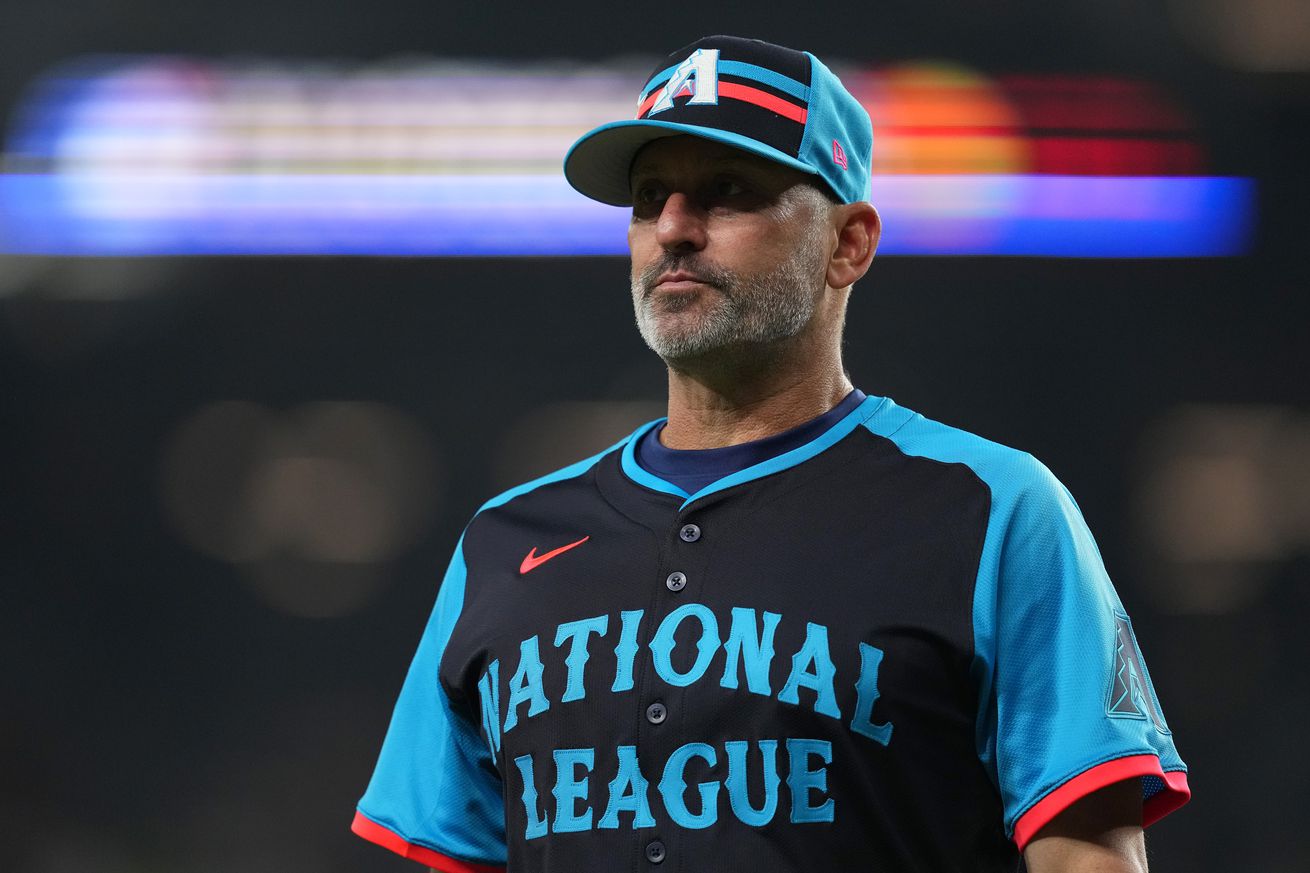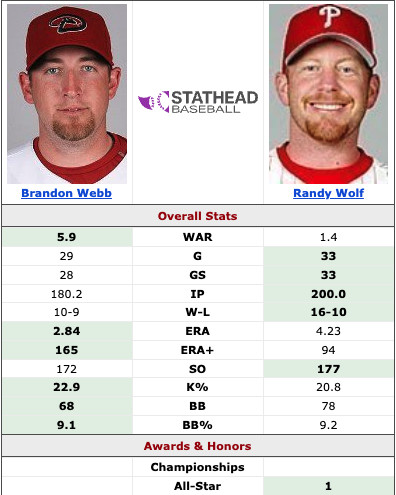
Who were the most deserving and undeserving Diamondback all stars?
As has become abundantly clear each year, the All-Star voting and selection process truly is a popularity contest in many ways. It’s intuitive that those teams with larger fanbases (Dodgers, Yankees, Phillies) will be able to outnumber the teams with smaller ones (Mariners, Orioles, D-Backs). Despite this numerical advantage, the league has done a reasonably good job in instituting certain changes that dilutes the popularity factor including posting each player’s counting stats during each voting phase. As a result, the All-Star rosters have become substantially more representative of the actual stars rather than just the players with the most jersey sales. Unfortunately, there will always be a mismatch between the number of available roster spots on the All-Star team and the number of deserving players. This mismatch in turn creates the kind of “snubs” that seemingly take over the internet surrounding the Midsummer Classic with this year’s version no exception. For the D-Backs, whose sole representative in Arlington was team leader Ketel Marte, Christian Walker is the most-cited snub for this year – and it’s hard to argue with that conclusion given what he recently did in Chavez Ravine. But, given, the necessary representative from every team, who are the most deserving and least deserving D-Backs who have been chosen?
For reference, here are the respective lists of D-Back all-stars for batters and pitchers. In many ways, the lists themselves are pretty enlightening for someone who was a bit too young to pay attention to the nuances. While there are plenty of Arizona luminaries like Randy Johnson and Paul Goldschmidt, there are a number of names that require a double take like Byung-Hyun Kim or Jay Bell. Adding to the confusion: Baseball Reference displays the player’s end-of-year statistics as a default which can obscure those times when a player might have had a better first half than the second.
Most Undeserving: Damian Miller and Joe Mantiply (Tie)
Let me preface by clarifying what I mean by “undeserving.” I am by no means trying to imply that these players were playing poorly or somehow shouldn’t have been all-stars at all. Instead, I think that these players either benefited from the required representative from each team in Mantiply’s case and the spillover effect of a World Series winner in Miller’s. After winning the Fall Classic in 2001, the D-Backs absolutely ruled the 2002 All-Star Game with a whopping six player representatives (Curt Schilling, Junior Spivey, Luis Gonzalez, Randy Johnson, Kim, and Miller) and Bob Brenly in the dugout. The 2002 National League team was so stacked that Johnson was relegated to the bullpen so Schilling could start in his stead. In Miller’s defense, he was having a good first half (.263/.356/.469 slash line) and the NL’s catching depth was a little top-heavy with Mike Piazza absorbing a ton of attention and votes.
Meanwhile, Mantiply was in the awkward position of representing a thin but resurgent Arizona squad in 2022 that had multiple candidates who could have been given consideration including Zac Gallen, Merrill Kelly, and Daulton Varsho. Unfortunately, all three were stuck in middling first halves (3.56 ERA/1.078 WHIP and 3.26 ERA/1.205 WHIP respectively) with a .233/.299/.409 slash line for Varsho keeping him from representing the Snakes. It’s not to say that Mantiply was having a poor year – in fact, he was one of the better relievers on a mediocre bullpen staff, but there were other candidates who could have been chosen instead.
Most Deserving: Brandon Webb
There’s no tie on this side. Brandon Webb was having the first of several excellent campaigns for the D-Backs when he was unjustly left off the 2003 roster (boy, those early 2000s Diamondbacks had some real standouts!) He would eventually have three well-earned consecutive selections from 06-08, but his rookie year was good enough to earn him a fourth. In the first half, he posted a 2.41 ERA and 1.041 WHIP including a stretch in June when he averaged seven innings/start and pitched a complete game shutout. Frustratingly, he wasn’t selected while Randy Wolf was despite nearly all of the head-to-head statistics do not bear up under the scrutiny. Even worse, Wolf’s first half was good (3.31 ERA and 1.086), but not quite as good as Webb’s My only hypothesis is the aforementioned popularity advantage was able to boost Wolf over some of the other candidates.
